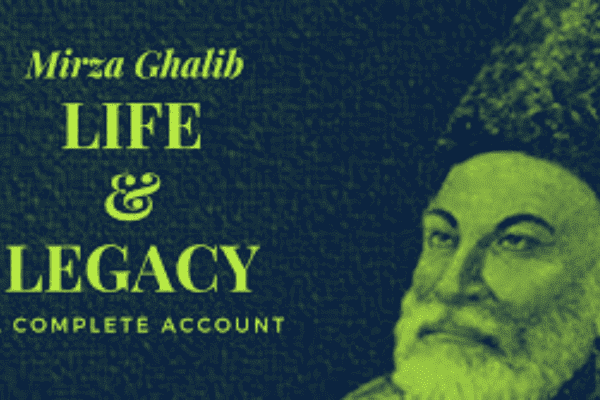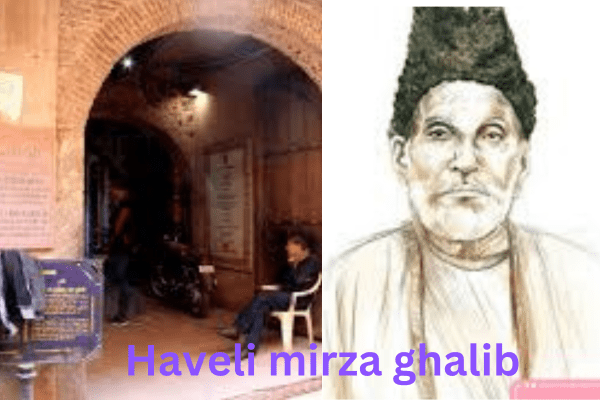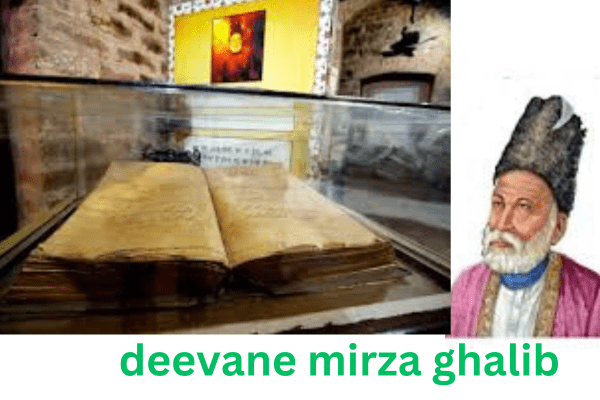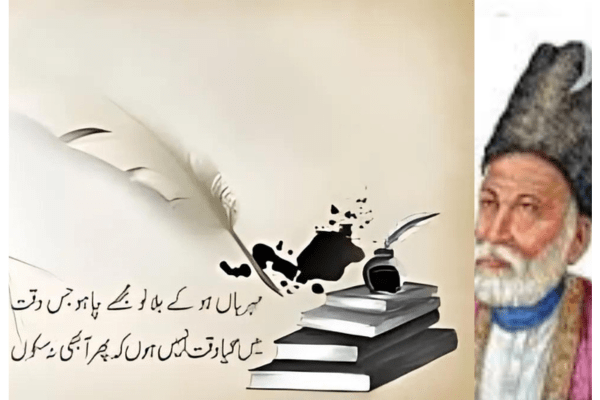Table of Contents
Discover Mirza Ghalib’s interesting life in Delhi, where the famed poet spent much of his creative years. Discover the locations, tales, and cultural icons linked with Ghalib’s legacy in the heart of India’s capital.

Introduction: Mirza Ghalib and His Connection to Delhi

Mirza Ghalib, one of the greatest poets of the Mughal Empire, is connected with Delhi. The city was not only his home, but also his inspiration, influencing his poems and ideas. Ghalib’s presence in Delhi is remembered through its small streets, antique structures, and cultural ethos. This article delves into Ghalib’s time in Delhi, his passion for the city, and the landmarks that continue to honor his legacy.
Ghalib’s Arrival in Delhi: A City of Dreams

Mirza Asadullah Baig Khan, often known as Ghalib, arrived in Delhi in the early nineteenth century, hoping to establish himself in the royal courts and intellectual circles. Delhi’s rich cultural atmosphere and lively literary heritage presented Ghalib with a one-of-a-kind venue to demonstrate his ability. It was here that he perfected his skill, eventually becoming a well-known Urdu poet.
The Role of Delhi in Shaping Ghalib’s Poetry
Delhi was more than just a setting for Ghalib’s poetry; it became a character in his works. His ghazals and couplets reflected the city’s busy streets, ancient landmarks, and sociopolitical changes. Ghalib’s poetry reflects the spirit of Delhi, both its grandeur and ruin, while also expressing his own personal problems and philosophical ideas.
Ghalib’s Residence in Delhi: Ghalib ki Haveli


Ghalib ki Haveli (Ghalib’s home) is a notable site linked with Mirza Ghalib in Delhi, located in the tiny alleyways of Ballimaran, Chandni Chowk. This haveli, where Ghalib resided for many years, has been transformed into a museum honoring his life and accomplishments. Visitors may examine the poet’s memorabilia, which includes manuscripts, letters, and personal things, to obtain insight into his everyday life and creative process.

Mirza Ghalib and the Mughal Court
Ghalib’s relationship with the Mughal court was an important part of his life in Delhi. He worked as a court poet for Bahadur Shah Zafar, the final Mughal Emperor. Despite his turbulent connection with the court, Ghalib’s writing skill earned him renown. His ghazals, composed in celebration of the emperor and the city, demonstrate his exceptional ability to combine humor with melancholy.

The Influence of Delhi’s Decline on Ghalib’s Work
Ghalib’s time in Delhi was characterized by significant developments. The city, long a center of culture and power, suffered collapse and devastation, particularly during the insurrection of 1857. Ghalib saw the fall of the Mughal Empire and subsequent British colonialism, which had a significant impact on his work. His letters and poetry from this time reveal his dissatisfaction with the loss of cultural identity and his grief over Delhi’s devastation.
Remembering Mirza Ghalib: Monuments and Memorials in Delhi
Several memorials and monuments in Delhi commemorate Ghalib’s legacy. Aside from Ghalib ki Haveli, the Ghalib Academy in Nizamuddin is a significant site. The academy, founded in the 1960s, functions as a cultural center, promoting Ghalib’s poetry and Urdu literature via exhibitions, seminars, and literary events. The neighboring Ghalib’s Tomb, a quiet resting spot, is a pilgrimage destination for poetry enthusiasts and Ghalib fans.
Ghalib’s Legacy in Contemporary Delhi
Mirza Ghalib’s legacy in Delhi may be seen not just in historical structures, but also in the city’s cultural fabric. His poetry is still cherished through mushairas (poetry recitations), literary festivals, and intellectual discussions. Ghalib continues to be an inspiration to generations of poets and authors, embodying tenacity, originality, and intellectual depth.
Conclusion: Delhi, the Eternal Muse of Mirza Ghalib
Mirza Ghalib’s relationship with Delhi was one of strong bonding and reciprocal impact. The city influenced his poetry, and his work immortalized Delhi in the annals of Urdu literature. Those who walk through the alleyways of Chandni Chowk, visit Ghalib ki Haveli, or recite his ghazals will always associate Delhi with Mirza Ghalib’s spirit.
